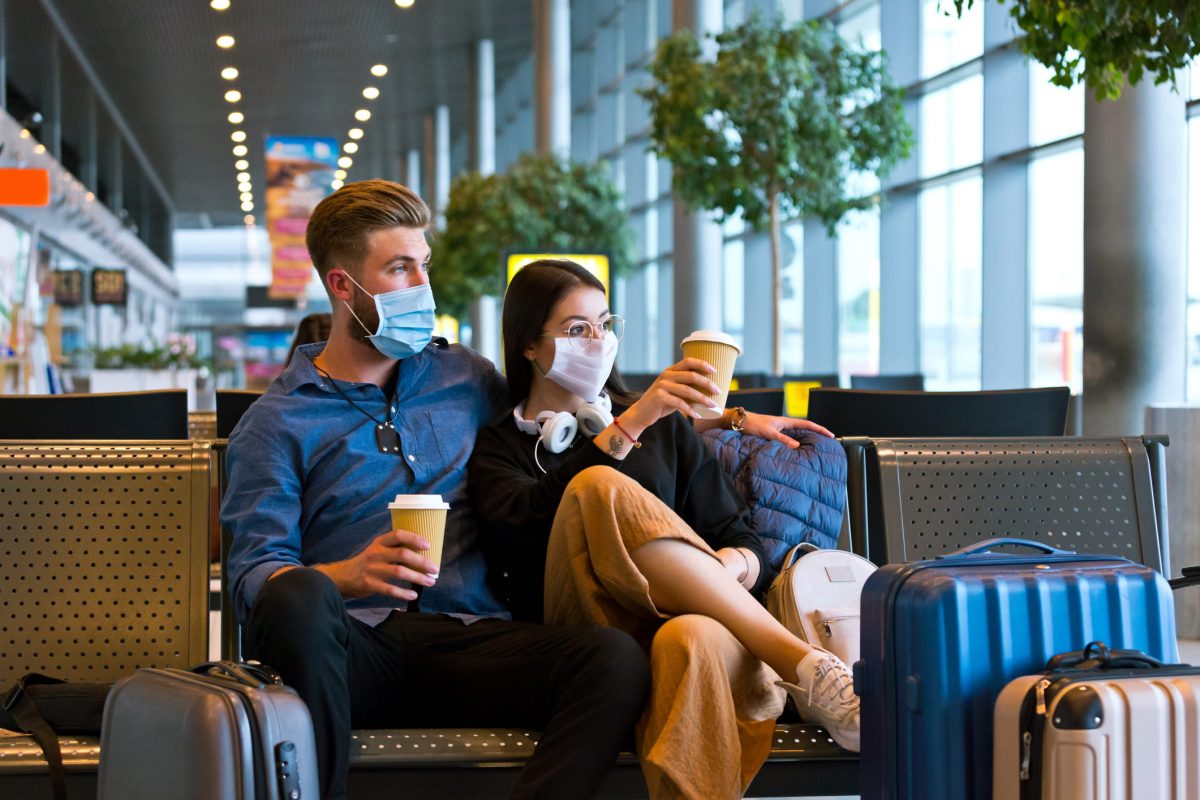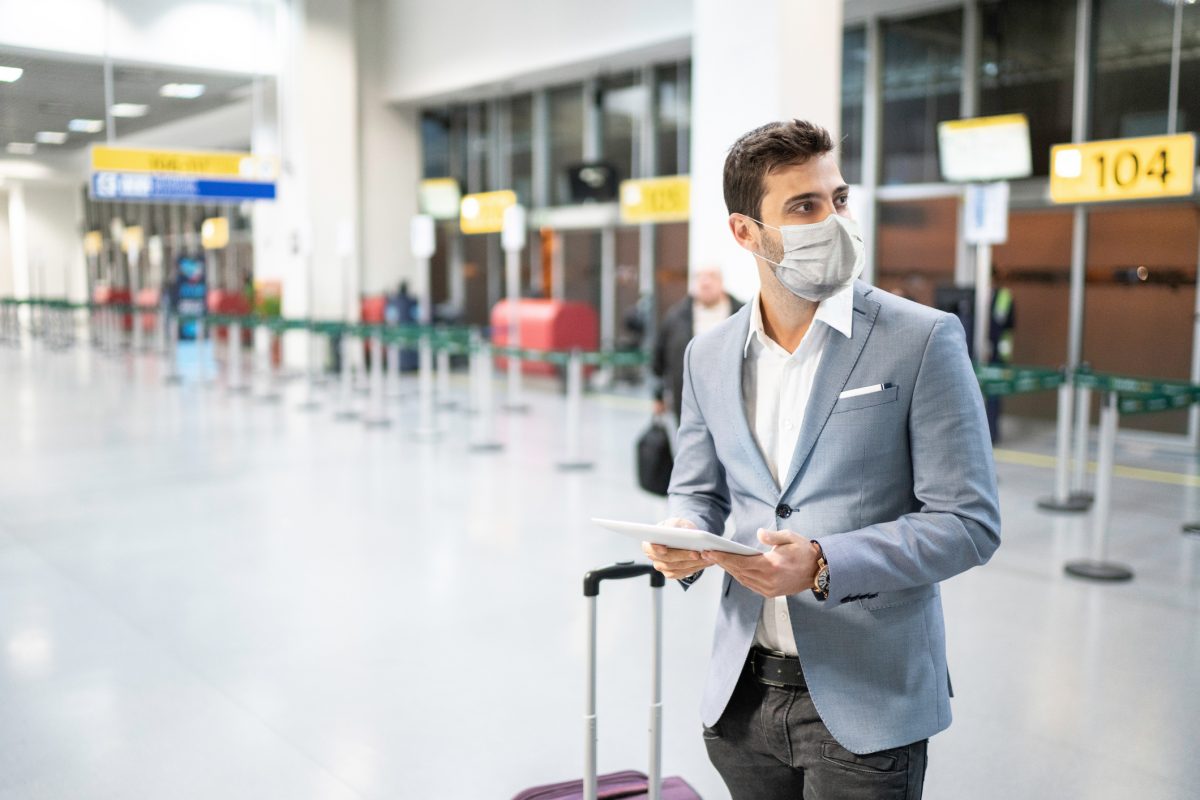Many employers must navigate an increasingly complicated world of COVID-19 travel recommendations brought on by the pandemic. One of the biggest challenges is that recommendations may change rather frequently. Some states or countries may have a regular update pattern for their data. Still others may target their data to organizations such as the Centers for Disease Control and Prevention (CDC).
In an environment with so much volatility, employers should confirm their travel policies are up-to-date. These policies should take into account data sources that provide guidance and assurance for travelers. For any employees that travel, employers should recognize a duty to provide updated information and guidance. This will help employees understand how they might travel safely during the pandemic.
COVID-19 Travel Recommendations: CDC Resources
The CDC maintains an updated Geographic Risk Assessment for COVID-19 Transmission website. This includes an interactive map that offers specific COVID-19 travel health information for each destination. The map is color-coded with five different colors for the following risk assessments:
- High Risk
- Moderate Risk
- Low Risk
- No Travel Health Notice (Risk is Very Low)
- No Data Available (Risk is Unknown)
Interestingly, the list of countries, areas, regions, and municipalities where there is no travel health notice includes both large and small population centers. The list includes:
- Taiwan (over 23,000,000 residents)
- Macau SAR (over 649,000 residents)
- Isle of Man (over 85,000 residents)
- Saba (over 1,900 residents).
The CDC notes that it bases its COVID-19 risk assessments on two data sets: virus transmission rates and healthcare capacity/public health infrastructure at the destination.
COVID-19 Travel Recommendations: U.S. Travel Association
The U.S. Travel Association® maintains an online COVID-19 Resources for Destinations website. Their website lists a number of resources for travel information. The “COVID-19 Travel Industry Research” section specifically relates to travel destinations, trends, and traveler sentiments. Resources include:
- Tourism Economics: weekly analysis on travel spending
- Arrivalist®: daily trends tracker of automotive trips of at least 50 miles
- Destinations Analysts: weekly insights into US business and leisure travelers
Other sections for resources include “CARES Act Relief Resources,” “COVID-19 Policy Priorities,” and “Travel Industry Recovery Resources.” The U.S. Travel Association® has published a fact sheet with several statistics showing the impact of COVID-19. Overall, the pandemic’s impact on the industry is greater than the impact of September 11 events and the Great Depression. The fact sheet includes a number of recommendations for lawmakers to help the industry and the nation’s economy move toward recovery.
COVID-19 Travel Recommendations: State Resources
Many states in the US have prepared responses and resources to help residents and visitors understand how they should comply with the state’s requirements. Several states have specific advisories relating to visitors coming from specific destinations.
Connecticut
For example, the state of Connecticut maintains an online “Travel Advisory for Visitors to Connecticut” with a note that it is updated on a weekly basis each Tuesday. Governor Ned Lamont of Connecticut issued Executive Order No. 7111 on July 21, 2020. The Order requires the following:
“…anyone traveling into Connecticut from a state with a positive test rate higher than 10 per 100,000 residents, or higher than a 10% test positivity rate over a 7-day rolling average, are directed to self-quarantine for a 14-day period from the time of last contact within the identified state.”
Connecticut also maintains an online “Connecticut COVID-19 Response” information portal with a number of additional resources
South Dakota
By comparison, the state of South Dakota does not have any travel restrictions for visitors. Governor Kristi Noem issued an Executive Order regarding COVID-19 guidelines. Generally, the Order requires that residents and employers must follow CDC guidelines in response to the pandemic.
However, some routes in the state that go through tribal lands may be closed. The South Dakota Department of Tourism has published a fact sheet noting COVID-19 travel recommendations and restrictions on tribal lands in the state. The Department also maintains an online “Coronavirus (COVID-19) Information” website with helpful information for visitors.
South Dakota also maintains an online “COVID-19 in South Dakota” information portal with a number of additional resources.
What Should Employers do About COVID-19 Travel Recommendations?
Companies should review their current travel policy and relocation program to determine if they need to review them for specific COVID-19 travel recommendations. Relocation Management Companies (RMCs) with expertise and experience in travel policies for relocation programs are a valuable resource for policy reviews. Companies should schedule a travel policy review on a regular basis to learn about the best travel tools and latest features. As a result, they will be able to streamline and enhance travel reporting and compliance requirements.
Conclusion
Global Mobility Solutions’ team of corporate relocation experts has helped thousands of our clients benchmark their relocation program and incorporate the best travel tools into their business travel policy. Our team can help your company understand how to identify COVID-19 travel recommendations into your company’s travel policy for your traveling employees.
GMS was the first relocation company to register as a “.com.” The company also created the first online interactive tools and calculators, and revolutionized the entire relocation industry. GMS continues to set the industry pace as the pioneer in innovation and technology solutions with its proprietary MyRelocation® technology platform.
New SafeRelo™ COVID-19 Knowledge Portal
GMS recently launched its new SafeRelo™ COVID-19 Knowledge Portal featuring a number of helpful resources including:
- Curated selection of news and articles specific to managing relocation programs and issues relating to COVID-19
- Comprehensive guide to national, international, and local online sources for current data
- Program/Policy Evaluation (PPE) Tool for instant relocation policy reviews
Learn how to incorporate COVID-19 travel recommendations into your company’s travel policy and relocation program. Contact our experts online or give us a call at 800.617.1904 or 480.922.0700 today.







